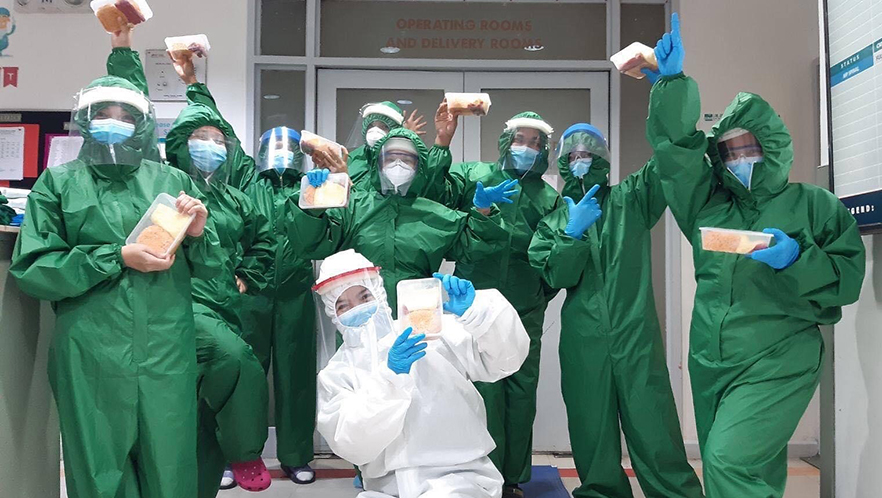Like many of us, Jen Teves can ride out the current pandemic in relative comfort, ordering takeout and having groceries delivered. But she knows that’s not the case for millions of people in her home country.

Jen, who works on Best Buy’s customer experience team, grew up in a small agricultural town in the Philippines. COVID-19 has the potential to devastate her home country, where one in five people live on less than $2 a day.
“If America and Europe are struggling, how much worse is it in a country like mine,” Jen said.
The Philippines only has 10 beds and 14 doctors per 10,000 people, according to data from the World Health Organization. So far, the country has close to 6,000 confirmed cases of COVID-19, and 380 people have died.
At first, Jen cried “buckets of tears.”
“I was scared. I was angry,” she said. “And then, I realized I could only cry so much, and so I acted.”
She quickly got to work, connecting with friends and family back home. In just four weeks, a group of about 20 people launched a feeding program for health care workers.
The organization, Frontline Feeders Philippines, recently surpassed the 100,000 meal milestone, feeding health care workers at 45 hospitals in 17 cities across the Philippines.
Each meal costs less than $2, but that provides more than food, Jen said.
“We’re sending the message that people care,” she said. “We’re giving hope.”
Jen also helped with efforts to donate personal protective equipment and thermal scanners to hospitals.
Still, she sees herself as a small piece in the puzzle. She’s helping make connections and find ways to provide funding. Others do the legwork, which includes finding restaurants to provide meals, fashion designers to donate fabric and pilots to fly materials around the 7,000 small islands that make up the country.
Continuing a legacy
One of the group’s smaller projects holds the most meaning for Jen. Her hometown has one hospital with fewer than 30 beds and no intensive care unit.
Before the country went on lockdown, Jen’s sister asked the hospital what their biggest needs were. They had a long list.
But the item that grabbed Jen and her family’s attention was thermal scanners to safely take temperatures. The hospital had none, and they are difficult to get.
Her family funded the first batch of thermal scanners for the hospital. Jen found a supplier and a way to ship the thermal scanners to the province, a challenge all on its own.
That success was incredibly meaningful to Jen. Her great uncle was the first doctor in her hometown, and her grandfather brought electricity to the village 30 years ago.
“We have a task to continue their legacies,” she said.
A place to be human
Jen shared all of this with her team at Best Buy in a weekly email called #FridayFeelings, in which someone from the team shares a positive story.
It was a hard decision to share such a vulnerable, personal story, but Jen said her team has created a safe space for employees to show their authentic selves.
The response was immediate and overwhelming as Best Buy employees reached out to encourage her and ask how they could help.
“Our whole purpose in human-centered design is to have empathy for people as we do our work,” said Jennie Weber, vice president of customer experience. “That has to be true for how we show up for one another, too. And it is one of the best parts of being at Best Buy — we care about each other.”
Back in the Philippines, the Frontline Feeders were getting messages of support, too. It was an encouragement for Jen because the project is all about human connection.
“Right now, the only thing we have is each other,” she said.


